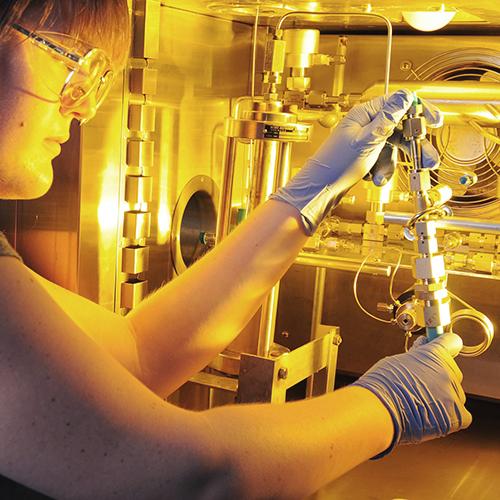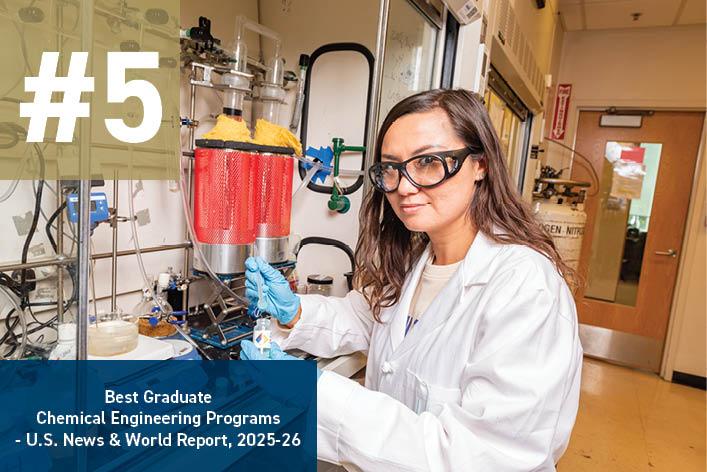(text and background only visible when logged in)

(text and background only visible when logged in)
The School of Chemical & Biomolecular Engineering offers graduate programs involving advanced-level coursework and independent research leading to MS and PhD degrees in chemical engineering. The MS degree can usually be obtained by coursework only, without a thesis. Course selection for both the MS and doctoral degrees is quite flexible, with individual plans of study developed for each student.
Research opportunities exist in a broad range of areas of importance to chemical engineers and society, including catalysis, reaction kinetics, complex fluids, microelectronics, microfluidics, optimization, bioinformatics, polymers, sustainable development, pulp and paper, separations, CO2 capture, biomedicine, solar energy, thermodynamics, MEMS, environmental science, reaction engineering, cancer diagnostics and therapeutics, biofuels, air quality, modeling, and process synthesis and control.
Furthermore, the School of Chemical & Biomolecular Engineering participates with other schools in offering MS and PhD degrees in Bioengineering as well as a PhD in Machine Learning.
Resources for Graduate Students
- PhD Curriculum
- MS Curriculum
- Graduate FAQ
- Graduate Classes Offered
- Graduate Minors
- Graduate Student Handbook
- Graduate Student Organizations
- Apply
Contact: Julie Champion, Associate Chair for Graduate Studies; Janice Whatley-Nwanze, Academic Advisor; Rowel Canicosa, Academic Assistant II
(text and background only visible when logged in)
